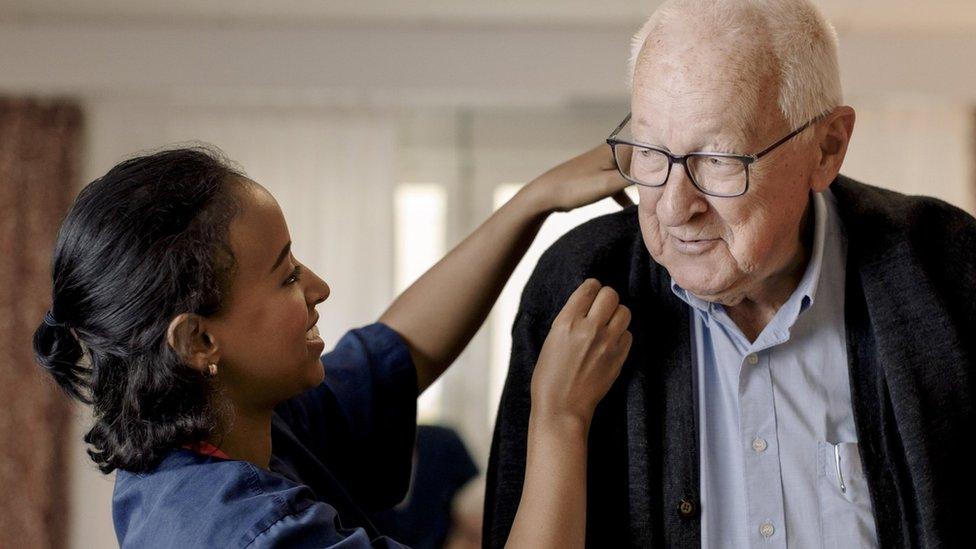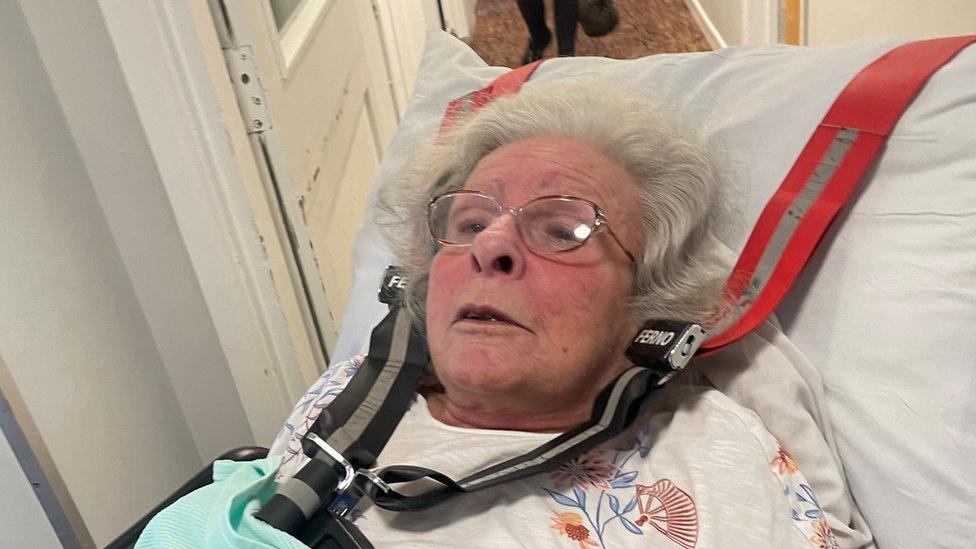Care home 'border hoppers' blasted by Monmouthshire council boss
- Published

The move is contributing to a predicted £3 million overspend in Monmouthshire County Council's adult services budget
People from England are "hopping the border" into Wales to avoid paying care home charges, according to a council boss.
It is contributing to a predicted £3 million overspend in Monmouthshire council's adult services budget, said Tyrone Stokes.
The finance manager for social care and health, dubbed the issue "social tourism".
He said the authority is picking up the cost of those who "take advantage".
Mr Stokes was outlining cost pressures faced by the local authority to a scrutiny committee when he said there are some care costs it has an obligation to meet, according to the Local Democracy Reporting Service.
He told councillors: "Monmouthshire is quite attractive to people who are retiring, bringing in older people to the county.
"We also suffer from, and I use the term loosely, 'social tourism'."
People going into residential care in Wales have their fees fully funded if they have assets of less than £50,000, while the figure in England is £14,250.
Monmouthshire County Council confirmed people from England can be eligible for its help in meeting their care costs, depending on a means-tested assessment in line with the Social Services and Wellbeing Act (Wales) 2014, external.
"The charging regime in Wales is much more generous than England, so we do see people hopping over the border to try to take advantage," added Mr Stokes.

The council has set up a quality assurance panel to keep a control of costs
The committee was also told that from the start of the current financial year in April 2023, the number of people in homes whose care is council funded - other than at the Severn View home in Chepstow, which it runs - had increased by 10 per cent by September to a total of 294.
That meant paying for an additional 26 people's care, contributing to a further £1.25 million in costs.
Mr Stokes said to keep a control of costs the council now has a quality assurance panel to consider every care package, examining issues such as whether reablement can be provided and the most appropriate care setting.
A council spokesman said: "Before making any funding decisions, we consider all our options, including establishing where ordinary residence should be, as this establishes which local authority should be responsible."
The spokesman also said "many factors" are taken into account when considering a care home placement including location to the client and their family connections, suitability and availability.


Related topics
- Published1 November 2023

- Published14 July 2023
